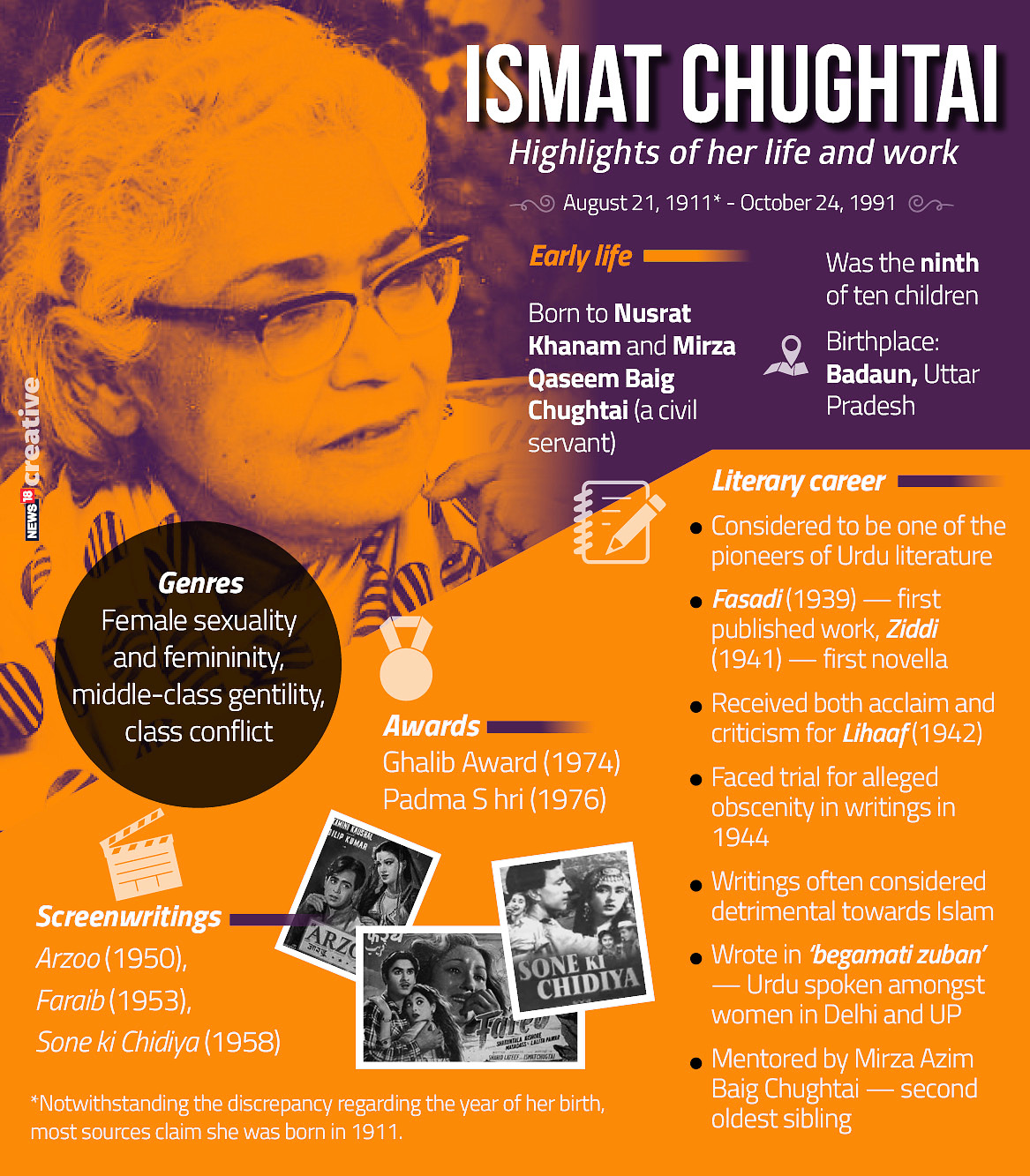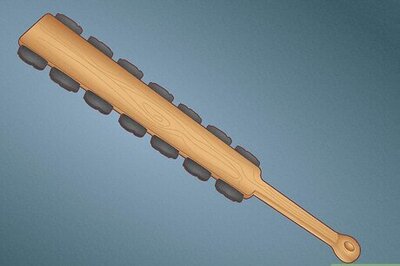
views
New Delhi: Short hair, saree and an outspoken nature — the three features of women that most people frowned upon during the pre-Independence days became a part of Ismat Chughtai’s identity. For a woman ahead of her times, no rules or criticism were enough to bog her down.
From changing norms to taking on powerful men of her time, the firebrand Urdu writer did everything that was considered improper for students of women’s college.
When Mullah Ahrari, a conservative editor of his times in Aligarh, called the city’s first women’s college a ‘den of prostitution’, little did he know what he was getting into.
The statement had not only attracted the wrath of the vociferous woman, but a scathing piece by Chughtai in Aligarh Gazette led to a dummy funeral procession of Ahrari in AMU.
“Muslim girls are already backward, now a mullah is after them,” she wrote in the journal, which was introduced, edited, and published in 1866 by Sir Syed Ahmed Khan.
She got the support of men in the main Aligarh Muslim University, when she told them – “If the college is closed, then only the women’s dead bodies would emerge from it. Would 6,000 ‘brothers’ stay silent spectators to the ruin of the women?” She called for men in the university to support her in driving him out.
Director Urdu Academy Aligarh Muslim University, Rahat Abrar’s book Muslim Female Education: From Veil to Moon has written about this episode and how Chughtai had challenged Mullah Ahrari. There was a dummy funeral procession of Mullah, as a mark of victory. Her fight didn’t stop at that but even went to the local court and filed a defamation case against him and the newspaper he edited. He lost the legal battle.

Chughtai and Her Days in Aligarh
Shadab Bano, teaching in Aligarh’s Women’s College presented a paper on Wahid Jahan, the wife of the founder of Women’s College, Shaikh Abdullah, where Ismat Chughtai studied.
In her paper titled 'Wahid Jahan, a Reformer’s Wife and Partner in Muslim Women’s Reform at Aligarh', she has written about the influence of Wahid Jahan’s daughter Rashid Jahan on Chughtai. Rashid Jahan was the member of the Communist Party of India, Progressive Writer’s Association and best known for her Urdu work Angaaray.
Bano tells News 18, “There were rigors of purdah observed in the institution as they would safeguard the prestige of the school and protect it from further criticism. Students were thus also protected from radical views, and even Rashid Jahan was reprimanded for her outspoken speech to College students. Perhaps the content of the speech, which had enthused students like Ismat, was regarded as improper for the College girls,” she said, and added, “Ismat’s writing changed from being focused on fairy tales to the realities of life. Her encounters with Rashid Jahan were important – she remembered Rashid as the women in sleeveless blouse and bob cut.”
Recalling the other incident Bano said that Chughtai once told the ‘Keats of Urdu Poetry’, Asrar-ul Haq Majaz that rules exist for women because of men like him, who are liberal but are not anything to encourage equality for women.
Remembering her legacy, Bano says, “I have been reading Chughtai - she introduced the concept of choices and freedom in life and wrote scathingly for gender equality. She was conscious of lack of freedom. Once Majaz made fun of restrictions under which women live, and asked her, how do you stay under such rules? She replied with equal candor, ‘Rules exist for women because of men like you – who are liberal but do nothing for women’s freedom. We need to remember the battles she fought.”
Chughtai would have been 107 today.
One of her famous incidents also include the time when Chughtai protested against the screen that blocked the physical interaction of the girls with the founder of the College, Shaikh Abdullah. “After she spoke against the screen, it was removed from the College – such is her legacy,” said Bano.


















Comments
0 comment